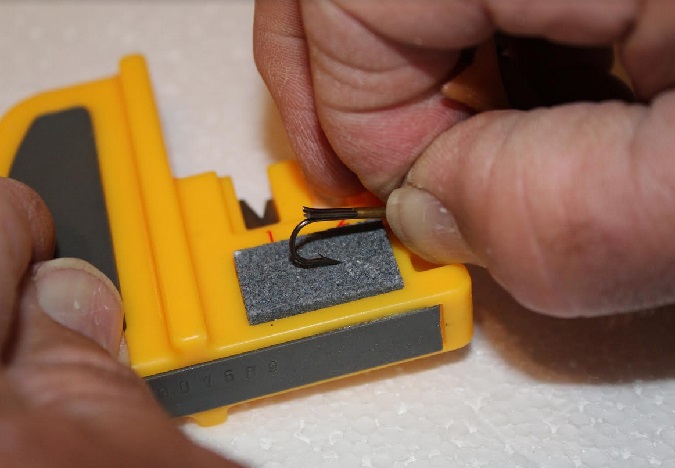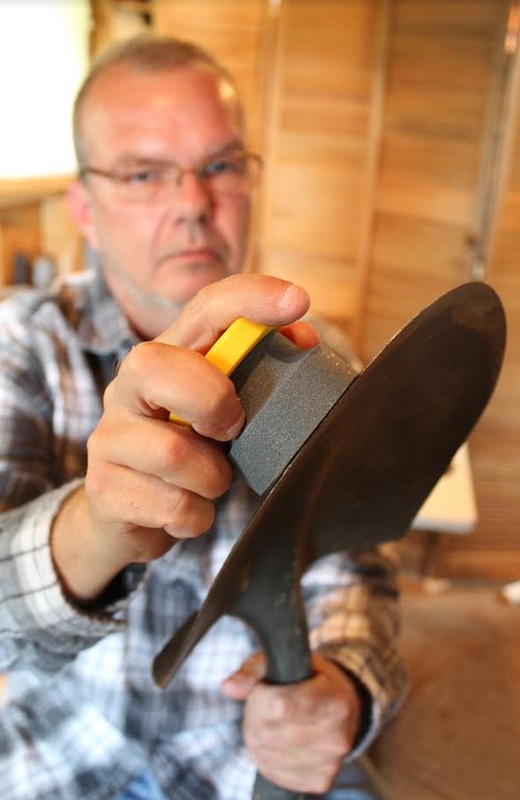 Being in New Hampshire means that there are only two seasons: winter and preparing for winter. Winter up here can start as early as October and last right through until April. It means long periods of cold weather and so much snow that at times, even if you can get out the door, the roads are impassable. Those not prepared are in for a long, rough ride.
Being in New Hampshire means that there are only two seasons: winter and preparing for winter. Winter up here can start as early as October and last right through until April. It means long periods of cold weather and so much snow that at times, even if you can get out the door, the roads are impassable. Those not prepared are in for a long, rough ride.
Around here the warmer months of the year are geared towards preparedness. Gardens are planted as soon as the soil can be worked. Fishing starts in earnest as soon as the ice breaks off the water and hunting begins with the spring turkey season. Damage from the previous winter’s ravages, and you know that there will be some, needs to be fixed now. Supplies of propane, wood or wood pellets and gas for generators and chainsaws needs to be replenished, all in an effort to be ready for the next time “Old Man Winter” comes calling.
There are a lot of things that need to get done and not a great deal of time to do them. Some things have to be put to the side, to get done later. Winter is my time to get some of those other things done. This is how my Native American ancestors did it and it works for me.
With the exception for the time I spent in the military, I have never left the land of my ancestors. They lived on and with this land for thousands of years before the first Europeans arrived on the New England shores and it is the lessons that have been passed down to me that allow me to continue to live, as much as I can, from the land. One thing that was taught to me is that you can’t fight Mother Nature. The best you can do is to live with and adapt to it. Winter is always going to be here, so make the best with what you have to work with.
Winter for my ancestors, and then the early settlers after them, often meant long hour, or even days, being hold up inside because the weather was so bad. Despite this things still needed to get done. Among the Native people the woman often used this time to make clothing from prepared animal hides while the men would fix fishing nets or make and fix tools. The same thing happened in the cabins of the settlers. Women often used this time to spin wool or make clothing and the men repaired tools and cleaned firearms. There are many lessons that can be learned from our ancestors if we take the time to listen. Many of these lessons can be easily applied today and making use of your time during the winter is just one of them.
Don’t get me wrong, there are still plenty of chores that need to get done on a regular basis during the winter. There is wood or wood pellets that need to be brought in to make sure the stove stays running; snow needs to be cleared from the roof and paths need to be cleared to the sheds. When those things are completed, I turn to those other projects that I have put off. Things like tool maintenance, fishing and hunting gear maintenance and maybe even making that special item that I promised my granddaughter.
Tool Maintenance:
Over the course of a year tools are used and abused. Things like shovels, hoes and axes all see heavy use around here. Handles break, blades dull and when that happens they need to be taken care of. Though we all know that knives and axes need to be sharpened, but how many people realize that garden tools like shovels, hoes and shears need to be sharpened as well? How many of us just put those tools back in the shed after we are done with them and giving them no second thought? Well, they need care as well.
The first thing I do is go out to the shed and grab all the axes, shovels and hoes and bring them in to where it is warm. It is hard to work in the cold with gloves on. Taking each item I inspect the handles, as this is always the weakest point, especially with axes and mauls. It makes no sense to sharpen the blades of a tool if the handle is broken. Those that are damaged need to be replaced. Quick fixes with tape are fine in the moment, but replacement is always the safest bet. Now you can go out and buy a new handle, if you can get out, or you can make your own. It is your choice.
Once that is complete I will begin sharpening the blades. A sharp blade is a safe blade and will make your work much easier. When it comes to sharpening my tools, other than my knives, there are a few products that I use. If I have power then I like to use the Work Sharp Knife and Tool Sharpener. Using three different abrasive belts, this tool will put an edge on your ax very quickly. The problem with winter is that the power goes out, but life still goes on. If there is no power then I switch over to using a Smith’s Axe and Machete Sharpener or a Smith’s Edge Eater Sharpener. In fact, it is the Edge Eater that I prefer to use for my shovels due to the curved blades of the shovels. When all else fails there is always the old tried and true Arkansas stone. Used for uncountable years, I have two or three at the homestead.
Fishing Gear:
If you are like me, by the end of the fishing season, despite your best efforts, your fishing gear probably is a tangled mess. I rely on my fishing gear to help put food in the freezer which means everything needs to be up to par come spring. Winter is the perfect time to put things back in order.
The first thing that I tackle is the rods and reels. Old line needs to be taken off and recycled. While the line is off, take apart the reels and inspect them for dirt and broken gears. Clean out as much of the old grease and dirt that you can using a clean cotton cloth. Use a pipe cleaner to get into the gears. A cotton swab will work in a pinch, but they often leave small fibers that can jam your gears. Re-grease and lube according to the manual that came with your reel and then re-assemble. Put on new line and you are done. At this point I like to spray the entire reel, including the line, with a light coat of GetSome 1000. This non-petroleum product keeps everything working without a greasy mess.
Next inspect the rods, looking for cracks or breaks. Make sure to check the eyelets or damage. Fix or replace broken rods now to prevent headaches later on down the road. Wipe down the rods and set them aside. Now it is time for the tackle box. Lay out some newspaper and then empty the box. Check all lures for rusted or broken hooks. Replace these. If the hooks are still in good shape just sharpen them. Both Work Sharp and Smith’s put some really good hook sharpeners. While the box is empty wipe it down getting rid of any old containers, dirt and anything else that has found its way there. Put everything back in order and you are now ready for spring.
Firearms:
When it comes to my firearms I am a stickler for keeping them clean. Around the homestead my firearms put food on the table and protect my family so they need to be in
top order. Whenever I return from the field or the range I always field strip the firearm, whether I shot it or not, and clean it. Once a year I do a complete breakdown and this is usually during the winter.
Make sure to spread out newspaper to help prevent any solvent damage to your work surface. Always get your supplies ready and where you can reach them before you start and only use quality products on your firearms. There are a lot out there so find one that works for you. I happen to like the product put out by Shooter’s Choice, Hoppe’s and GetSome. Always follow the instructions in your firearm’s manual whenever doing a complete breakdown, no matter how many times you have done it. The smallest mistake or oversight can lead to big problems.
The list of things that need to be done can go on and on. If you live this lifestyle then you know that there will always be things that need to get done. The key is to use your time wisely. The long, cold days of winter are a great time to complete some of those tasks that were put off during the rest of the year. If you are going to get stuck inside you might as well grab a cup of coffee, throw another log on the fire and make that time productive.
